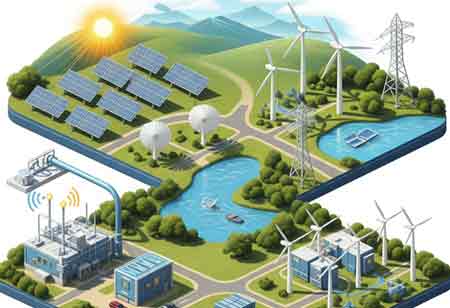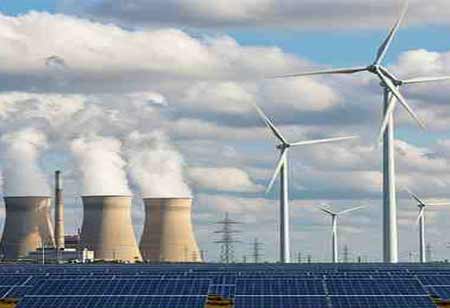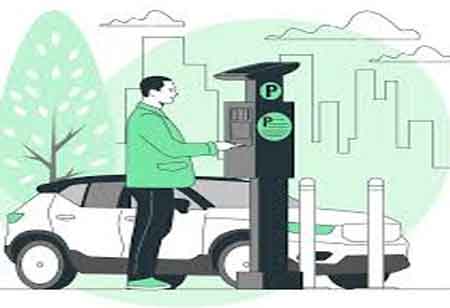CLOSE
Specials
I agree We use cookies on this website to enhance your user experience. By clicking any link on this page you are giving your consent for us to set cookies. More info
Be first to read the latest tech news, Industry Leader's Insights, and CIO interviews of medium and large enterprises exclusively from Energy Tech Review
Thank you for Subscribing
Innovating Energy: The Path to a Sustainable Future
Technological advancement has transformed the energy sector by enabling energy extraction, production and distribution to be more efficient, sustainable and accessible.

By
Energy Tech Review | Wednesday, December 10, 2025
Stay ahead of the industry with exclusive feature stories on the top companies, expert insights and the latest news delivered straight to your inbox. Subscribe today.
FREMONT, CA: Innovation in high technology has revolutionized several industries, most notably the energy sector, which has opened up enormous new sources of oil and natural gas from shale basins. Energy distribution networks may be monitored and controlled in real time thanks to tools like data analytics, smart grid sensors, and communication technology.
From enhancing energy security by reducing import dependence to creating new job opportunities within the sector, innovations like horizontal drilling and hydraulic fracturing revolutionised various aspects of energy production, supply and consumption. These changes have resulted in transforming not only industries which produce commodities like oil and gas but also reshaping the way companies produce and deliver electric power.
Adoption of the Internet of Things (IoT) devices such as smart thermostats, lighting systems and industrial automation in energy management offers optimisation of electricity consumption in buildings, leading to more efficient power usage and cost savings. These technologies facilitate demand response programs by enabling consumers to adjust their usage according to electricity prices or supply-demand imbalances.
For instance, IoT-driven devices can automatically reduce energy consumption during high-demand periods, aiding in the reduction of overall energy costs. Another advancement is the integration of blockchain technology which facilitates the decentralisation of energy systems, empowering individuals to produce needed energy and sell it directly to other consumers without depending on traditional utility providers.
Developments in battery technologies and innovation of electric vehicle (EV) charging infrastructures have resulted in a rise of more such vehicles, reducing reliance on fossil fuels and paving the way towards sustainable mobility. These energy storage solutions help address periodic challenges of renewable energy sources by enabling better grid stability, load balancing and excess power storage for future use. Indeed, emerging economies are now deploying advanced technologies, especially in critical areas like carbon capture, sequestration and storage from power plants and industrial processes, aiming at the construction of a clean energy economy.
Considering new trends in the energy industry, smarter management of complex systems aided companies in drilling natural gas and oil from complex terrain, while data analytics empowered individuals to analyse the vast amount of data, aiding in the identification of reserves and control production. The emergence of robotics in the energy industry enabled remote drilling and the utilisation of the latest technologies for inspecting offshore pipelines and underwater equipment.
Integrating high-tech innovations in the energy sector has become a mandate rather than an option for maintaining a competitive edge in a tech-driven business environment. As technology advances rapidly, it will likely play an important role in moulding the power industry's future, facilitating a global transition towards a highly sustainable and resilient energy system.

Copyright © 2025 Energy Tech Review. All rights reserved






